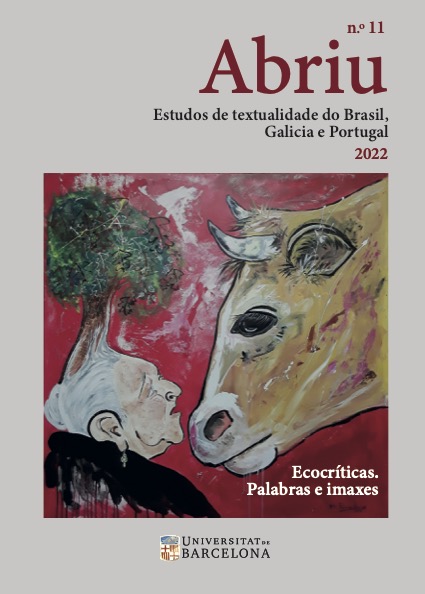The "velha" who was a "manceba"
Contributions to a new interpretative hypothesis of the cantiga "Direi-vos ora que oi dizer" e Joan Vaasquiz de Talaveira (B 1545)
DOI:
https://doi.org/10.1344/abriu2022.11.8Keywords:
Cantigas de escarnio, aequivocatio, old age, Joan Vaasquiz de Talaveira, Maria LeveAbstract
In the comments that accompany the successive editions and studies of the Cantiga de Escarnio Direi-vos ora que oi dizer (UC 1564=Tav. 81,4; B 1545;) attributed to Joan Vaasquiz de Talaveira, repeated reference is made to the lesbian relationships that the soldadeira main character, Maria Leve, would maintain with a maid of hers, and it is emphasized that this is one of the main reasons on which the satire is based. In this work we intend to demonstrate that the basis of the satire is different, and that, if the homosexual component has a place in the inter- pretation of this text, it will be only in a very secondary way. At the same time, we will analyze other difficult-to-solve textual issues that the Cantiga presents and
that hinder its full interpretation.
Downloads
Published
How to Cite
Issue
Section
License
Copyright (c) 2021 Bieito Arias Freixedo

This work is licensed under a Creative Commons Attribution-NonCommercial-NoDerivatives 4.0 International License.
The Author retains ownership of the copyright of the article, unless the contrary is stated, and all rights not expressly granted in this agreement, including the non-exclusive right to reproduce, distribute, perform, and display the article in print or electronic form, and grants to Abriu: estudos de textualidade do Brasil, Galicia e Portugal the exclusive rights to first publication of the Article. The work will be available under a Creative Commons Attribution-Noncommercial-No Derivative Works license, by which the article must be credited to the Author and the Journal must be credited as first place of publication.


